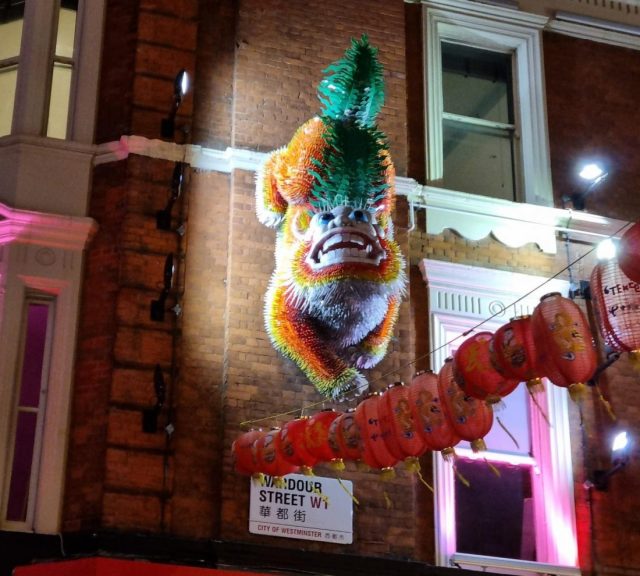Chinese New Year 2025: The Year of the Snake and its Significance
Chinese New Year 2025: The Year of the Snake and its Significance
Chinese New Year, also known as Lunar New Year or Spring Festival, is among the most significant and widely celebrated festivals in Chinese culture. It marks the beginning of the lunar calendar year, a time filled with family reunions, delicious feasts, and traditional customs meant to bring good fortune and prosperity. In 2025, the Chinese New Year falls on January 29, and it will usher in the Year of the Yin Wood Snake.
The Chinese Zodiac: What the Snake Symbolises
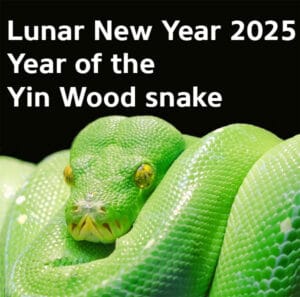 The Chinese zodiac is a twelve-year cycle, each represented by an animal, and 2025, the Year of the Snake, the sixth sign in the zodiac. Those born under the Snake are known to possess traits such as intelligence, charm, and deep intuition. In Chinese culture, the snake is considered a symbol of wisdom and mystery. Its association with the Wood element this year brings a fresh energy that emphasizes growth, flexibility, and balance, as wood is tied to creativity and vitality in Chinese metaphysics.
The Chinese zodiac is a twelve-year cycle, each represented by an animal, and 2025, the Year of the Snake, the sixth sign in the zodiac. Those born under the Snake are known to possess traits such as intelligence, charm, and deep intuition. In Chinese culture, the snake is considered a symbol of wisdom and mystery. Its association with the Wood element this year brings a fresh energy that emphasizes growth, flexibility, and balance, as wood is tied to creativity and vitality in Chinese metaphysics.
People born in the Year of the Snake (Those born the 4th of February and the 3rd of February in the following year in 1941, 1953, 1965, 1977, 1989, 2001, 2013, and 2025) are considered thoughtful and calm, often excelling in research, strategy, and other analytical pursuits. However, they are also perceived to be secretive and sometimes overly cautious.
Key Traditions of Chinese New Year
Chinese New Year is rich with traditions, many of which are centred on inviting good luck, prosperity, and happiness while driving away bad luck and evil spirits. Some of the most cherished customs include:
1. Spring Cleaning
In the days leading up to the New Year, families clean their homes thoroughly to sweep away bad luck from the previous year and make space for good luck. It’s believed that cleaning after the New Year begins could inadvertently sweep away the incoming fortune.
2. Decorations
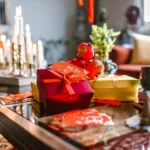 Homes, streets, and businesses are adorned with bright red banners and lanterns, as red is considered a lucky colour that wards off evil spirits. You’ll also see paper cutouts of the Chinese character 福 (fú), meaning “blessing” or “good fortune,” often hung upside down to symbolise that luck is “arriving.”
Homes, streets, and businesses are adorned with bright red banners and lanterns, as red is considered a lucky colour that wards off evil spirits. You’ll also see paper cutouts of the Chinese character 福 (fú), meaning “blessing” or “good fortune,” often hung upside down to symbolise that luck is “arriving.”
3. Family Reunions and Feasting
Chinese New Year is, above all, a time for family. On New Year’s Eve, families gather for a grand reunion dinner known as nián yè fàn (年夜饭). The meal typically features symbolic foods such as fish (representing abundance), dumplings (for wealth), and rice cakes (for promotion and success). Each dish carries its significance, and the act of sharing these meals strengthens family bonds.
4. Lion and Dragon Dances
Lion and dragon dances are typical performances during the Chinese New Year, especially in larger public celebrations. These dances are performed to the beat of drums and gongs and are meant to scare away evil spirits while bringing joy and prosperity to the community. The lion, in particular, is believed to bring good fortune.
5. Giving Red Envelopes
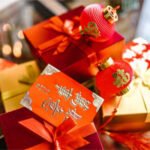 Known as Ang Pow, red envelopes filled with money are gifted to children and unmarried young adults as a symbol of luck and prosperity. The envelopes are often handed out by elders or employers to wish their recipients good fortune in the coming year. The money inside is usually an even number, as odd numbers are associated with funerals in Chinese culture.
Known as Ang Pow, red envelopes filled with money are gifted to children and unmarried young adults as a symbol of luck and prosperity. The envelopes are often handed out by elders or employers to wish their recipients good fortune in the coming year. The money inside is usually an even number, as odd numbers are associated with funerals in Chinese culture.
The Legend of Nian and the Origins of the Celebration
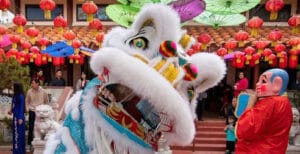 The origins of Chinese New Year can be traced to ancient myths and legends, the most famous of which is the story of Nian, a fearsome beast believed to terrorize villages on New Year’s Eve. According to legend, Nian would emerge to devour crops, livestock, and even villagers. To ward off the beast, the villagers discovered that it feared loud noises and the colour red. This is why firecrackers, red decorations, and festive displays became integral to the celebrations—symbolising the victory over Nian and the ushering in of a peaceful new year.
The origins of Chinese New Year can be traced to ancient myths and legends, the most famous of which is the story of Nian, a fearsome beast believed to terrorize villages on New Year’s Eve. According to legend, Nian would emerge to devour crops, livestock, and even villagers. To ward off the beast, the villagers discovered that it feared loud noises and the colour red. This is why firecrackers, red decorations, and festive displays became integral to the celebrations—symbolising the victory over Nian and the ushering in of a peaceful new year.
Chinese New Year in Modern Times
While traditional customs remain at the heart of Chinese New Year, modern celebrations have evolved. With the increasing globalization of Chinese culture, Chinese New Year is now celebrated worldwide, particularly in countries with significant Chinese communities like Malaysia, Singapore, the United Kingdom, and the United States. In recent years, parades, fireworks, and even themed events have become highlights in major cities like New York, London, and Sydney.
In China, technological advancements have also transformed the festival, with many sending virtual red envelopes through apps instead of physical ones. Despite these modern changes, the essence of Chinese New Year—celebrating unity, family, and the hope for a prosperous year ahead—remains unchanged.
What to Expect in the Year of the Snake 2025
The Year of the Wood Snake brings a different energy compared to the past year of the Dragon. Snake years are believed to be times of quiet contemplation, where patience and strategic thinking will lead to success. This particular year, governed by the Wood element, emphasizes harmony, adaptability, and steady progress. It’s an auspicious time to nurture long-term goals, focus on personal growth, and embrace change.
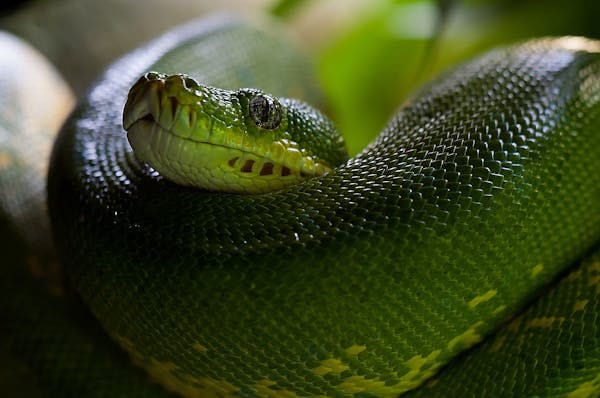
Conclusion
As the world prepares to welcome the Year of the Snake in 2025, the spirit of the Chinese New Year remains a powerful force of joy, connection, and hope. Whether you’re celebrating with family, enjoying festive parades, or sharing symbolic foods, the Chinese New Year offers a chance to reflect on the past and look forward to a new year filled with prosperity and happiness.
From the iconic lion dances to the sharing of red envelopes, the traditions of Chinese New Year unite people across the globe, reminding us that the themes of renewal and togetherness transcend borders and time. May the Year of the Snake bring wisdom, success, and joy to all!



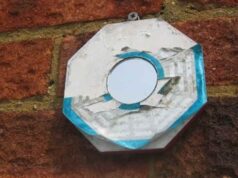


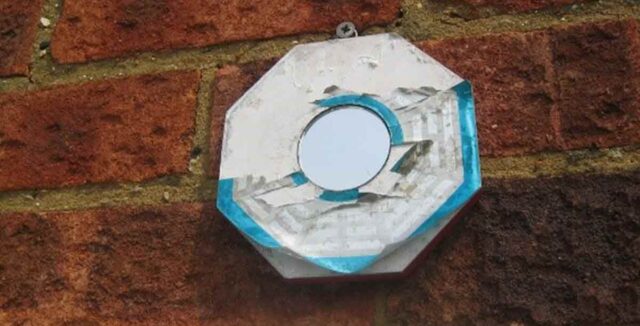
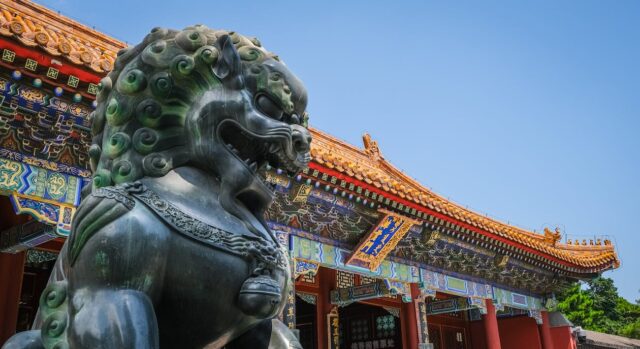

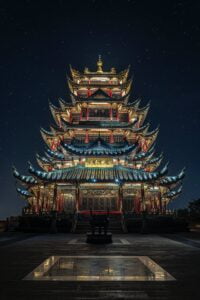 I have been using Feng Shui for many years to enhance various aspects of my life, and I have professionally practised Feng Shui for thousands of individuals and businesses all over the world. Feng Shui is an ancient Chinese system of knowledge believed to have originated at least five thousand years ago, and it is mentioned in surviving texts from that era. Similar systems exist in India (known as Vasthu Shastra), Tibet, and Japan (known as Nine Star Ki). Interestingly, Feng Shui also shares some similarities with the ancient Egyptian knowledge, which was brought to Europe during the Crusades and later introduced to North America by European exiles.
I have been using Feng Shui for many years to enhance various aspects of my life, and I have professionally practised Feng Shui for thousands of individuals and businesses all over the world. Feng Shui is an ancient Chinese system of knowledge believed to have originated at least five thousand years ago, and it is mentioned in surviving texts from that era. Similar systems exist in India (known as Vasthu Shastra), Tibet, and Japan (known as Nine Star Ki). Interestingly, Feng Shui also shares some similarities with the ancient Egyptian knowledge, which was brought to Europe during the Crusades and later introduced to North America by European exiles.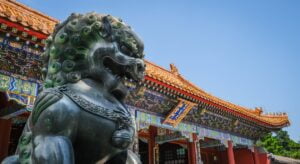
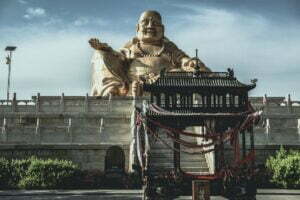


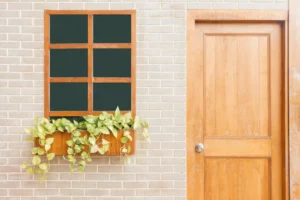
 The Kitchen: Nourishing the Heart of the Home
The Kitchen: Nourishing the Heart of the Home The Outdoor Space: Connecting with Nature
The Outdoor Space: Connecting with Nature


